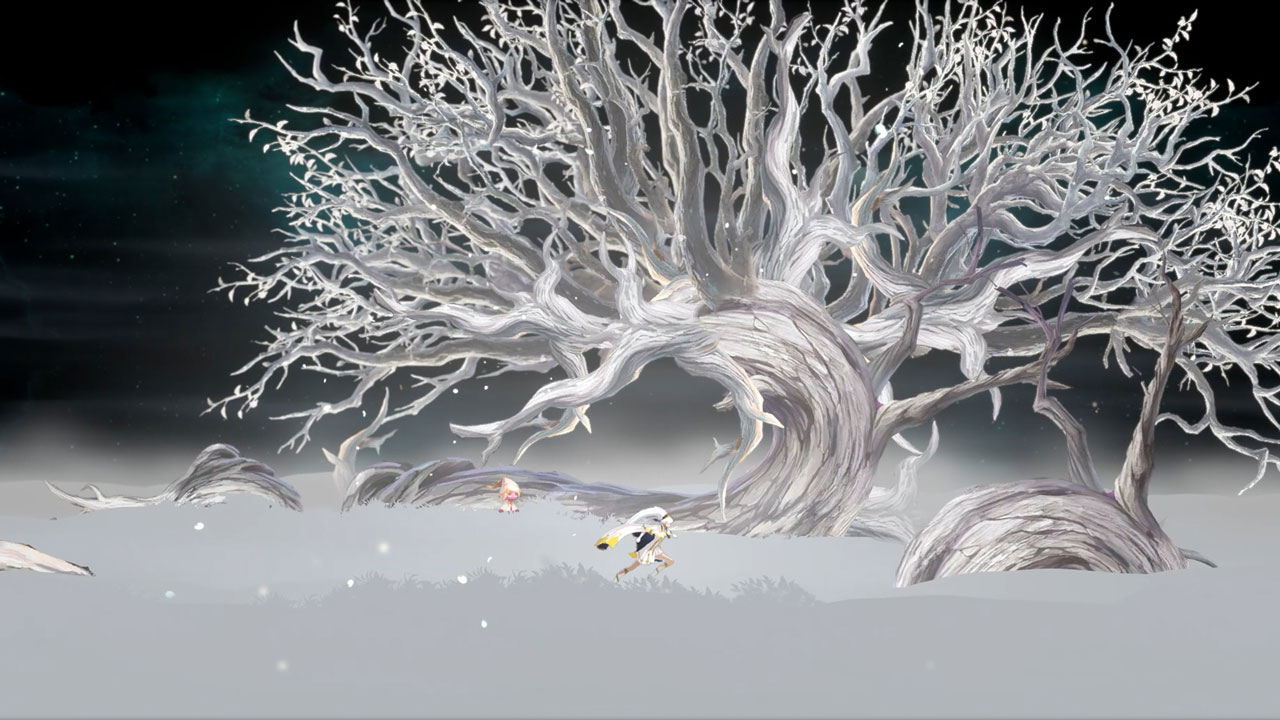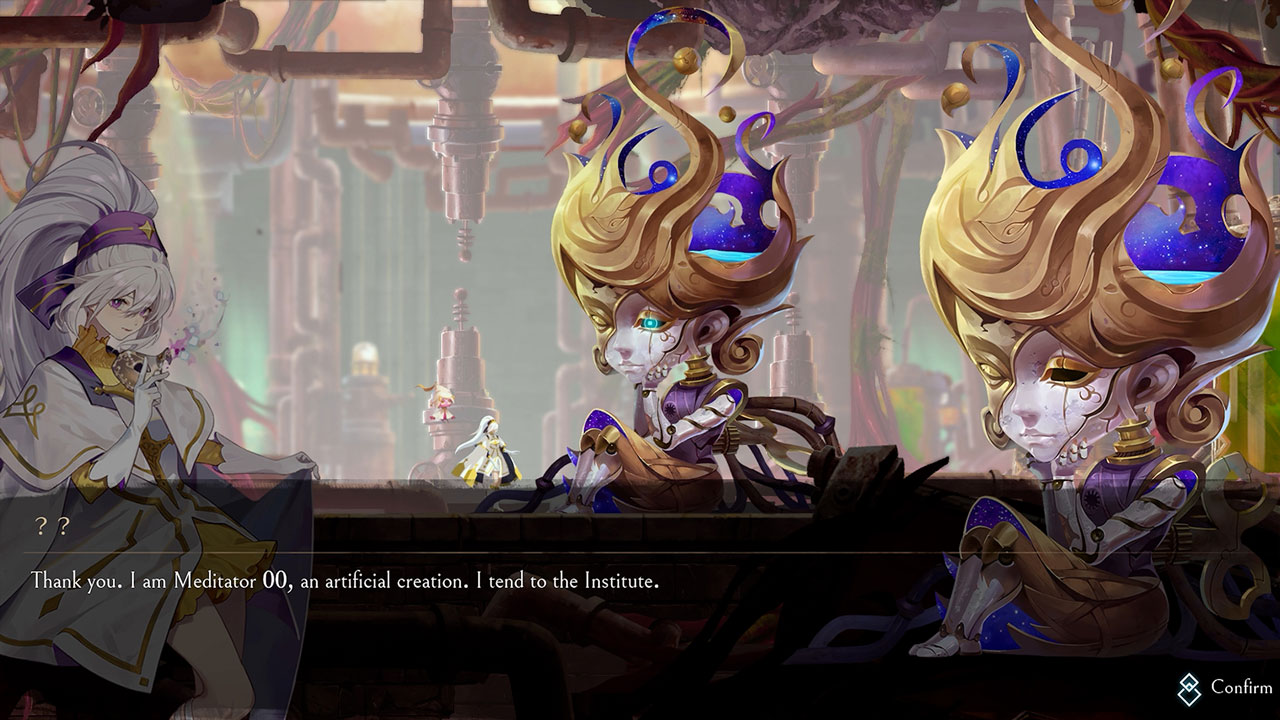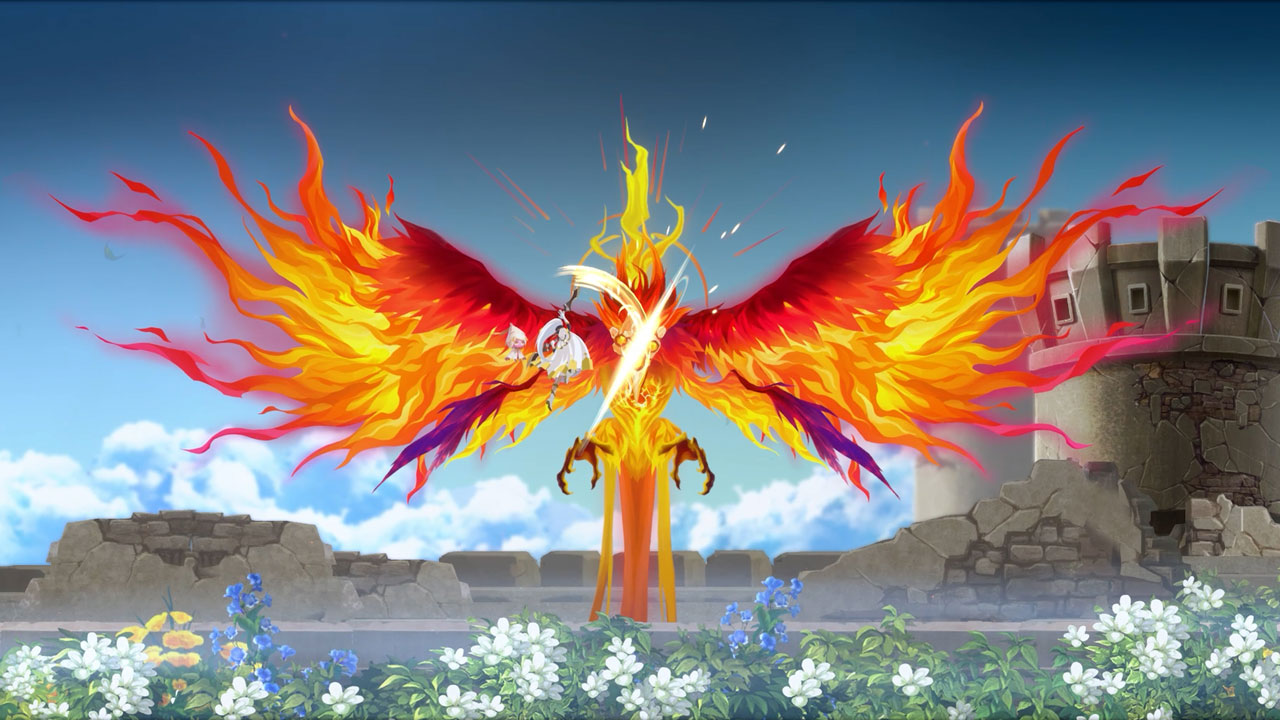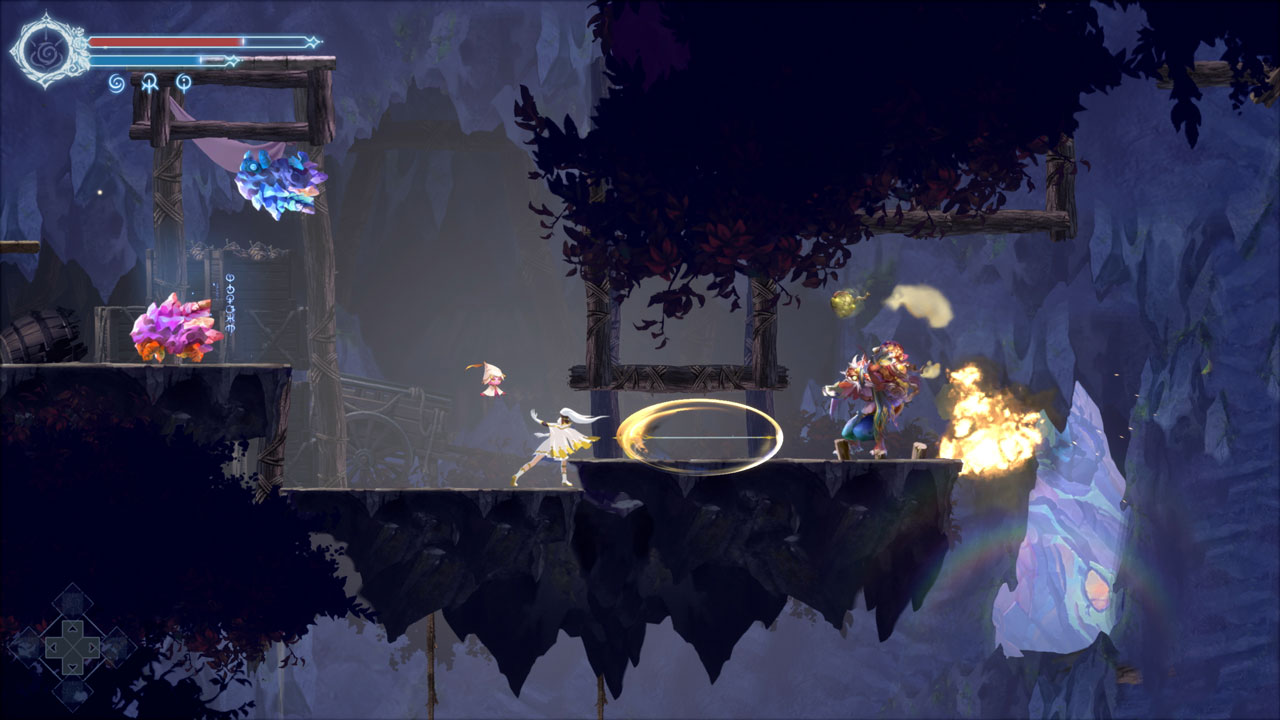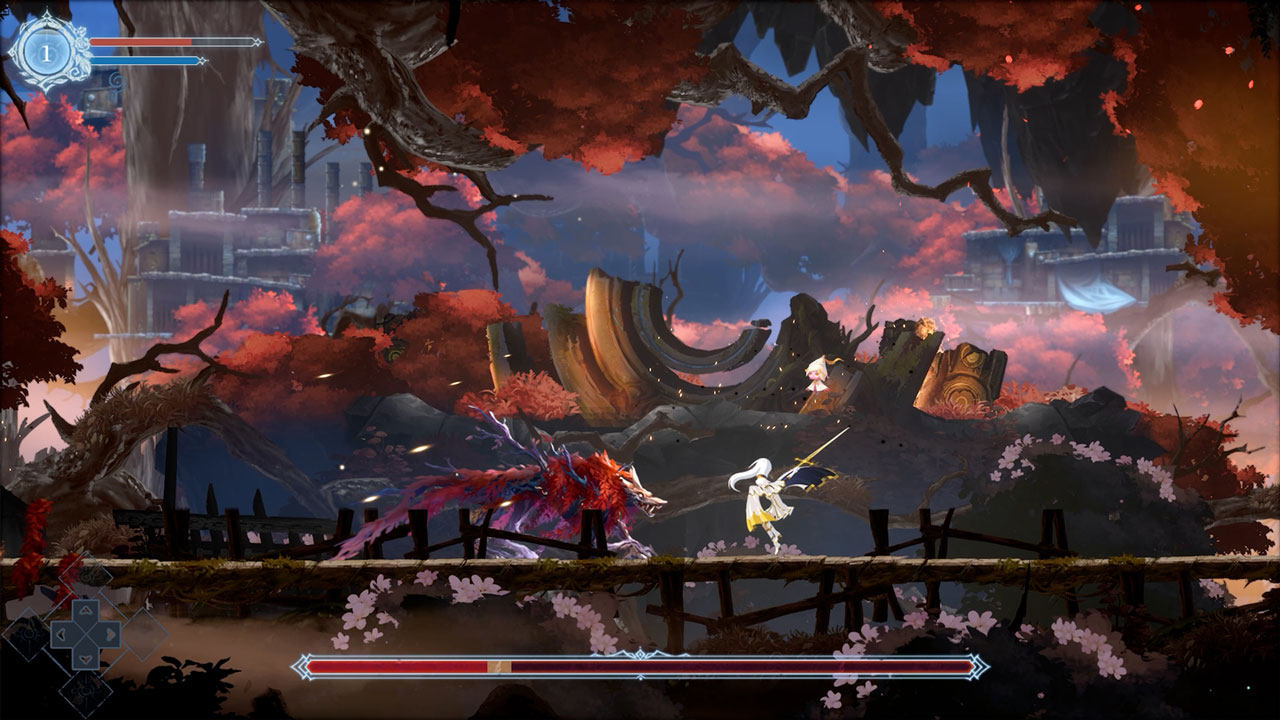I keep forgetting I’m not very good at Metroidvanias. I recall beating some, and those memories are what emboldens me to try another when I’m suckered in by their vibrant visuals and intricate combat. But then I meet a boss I can’t beat, and I’m reminded of all the Metroidvanias I didn’t finish.
Afterimage is one of those games, but I can’t say I’m not trying. This review is a few weeks late because of my efforts to push to the end. I’m going to get there, come hell or high water, but I’m deep enough now to comfortably state the game’s worth the challenge…if you prefer the challenge.
The action centers around Renee—a young amnesiac girl (is there any other kind of hero, really?)—who has just awakened in the ruins of her home world. She sets out to rescue her mentor, and…there you go. Afterimage is not much on storytelling, with plot elements being sparsely scattered throughout the game.
You’ll learn about this world, its history, and Renee’s place in it, but not in a way that compels you forward. That’s fine if you’re all about the action, but a more interesting narrative could have provided some needed motivation to grind past the game’s numerous roadblocks.
Speaking of which, I should mention the initial loading screen. Afterimage took so long to get started when I first booted it up that I shut it down and tried again. Same lengthy start, but I stuck with it for a minute or two and was then greeted with the startup screen. Subsequent launches weren’t as bad, but a “hang in there” graphic sure would’ve been useful. My other main complaint centers around the user interface, which is clumsy enough in almost all aspects to indicate this game wasn’t initially meant for a Switch controller.
Anyway, the game. As with most Metroidvanias, Afterimage uses its early levels to teach you the mechanics of the game and give you some false hope. Here are your weapon attacks. Here’s your magic attack. Here’s your dodge. This is how you level up your skills and learn new moves. Here are some potions, but don’t rely on them alone.
Whether a Metroidvania works within these parameters mostly depends upon the quality of exploration and combat. This is where Afterimage shines, provided you’re up for the challenges both present. Exploration is mostly accentuated by the gorgeous visuals that create a world you want to explore. The levels make wonderful use of color and depth to bring them to life, but in a way that doesn’t interfere with the combat. Playing a game this pretty makes me wish more developers adopted this visual style instead of relying on the retro visuals of which we see too much these days.
That said, Afterimage relies so much on backtracking that you’ll likely grow tired of many areas. After just a few hours in, I dreaded seeing something I knew I’d have to come back for, mainly because pushing forward was already hard enough. On the other hand, returning to previously explored areas of this game’s open world did provide a built-in way to level up. I’ll take that over just wandering in circles to fight the same monsters over and over again.
Fighting those monsters is mostly pretty fun. I’ll credit that to the variety of monsters (and their attacks) and to the game’s responsive controls. Although it’s easy to blame my inefficiency on the controller or the game’s physics, I couldn’t do that here. Any difficulties in advancing past many of the bosses were my fault, not the developer’s. Unlocking some new skills was sometimes all it took to move on, but I wish the game allowed me to utilize Renee in a way that fit my playing style. Rather, it seemed I had to learn/master a specific ability in order to win.
And those bosses. Wow. I’m used to games that simply require you to learn their attack patterns and pick out the best weapon to counter those attacks. That wasn’t always the case here, as many of the game’s 30 bosses would adjust their attacks based on my methods. In other words, there’s no easy way to get past anyone. You’ll have to change your methods based on how enemies change their methods, meaning you actually need to get good at the game. Even still, you’ll need to grind away on lesser enemies in order to have a chance.
If you see that as being the entire point of a Metroidvania, then Afterimage is right up your alley. It offers thrilling, rewarding combat that’ll make you feel like you’ve really accomplished something when you advance. It provides a big world to explore with plenty of secrets to find. And it does all of this in a visually appealing way.
But it’s also very hard, and it will, at times, seem unfair. If that tends to put you off of games, there’s not much else going on here to pull you back on. Afterimage is combat for the sake of combat—challenge for the sake of challenge—and accomplishment is its sole reward.
Come hell or high water.
Review: Afterimage (Nintendo Switch)
Fair
Afterimage is a Metroidvania with attractive 2D visuals and crisp combat, and it really wants to make sure you’ve earned any victories you get. The action is tricky, especially with the numerous bosses that are smarter than what you may be used to. But if you’re up to the challenge, you’ll find the game’s rewards.

